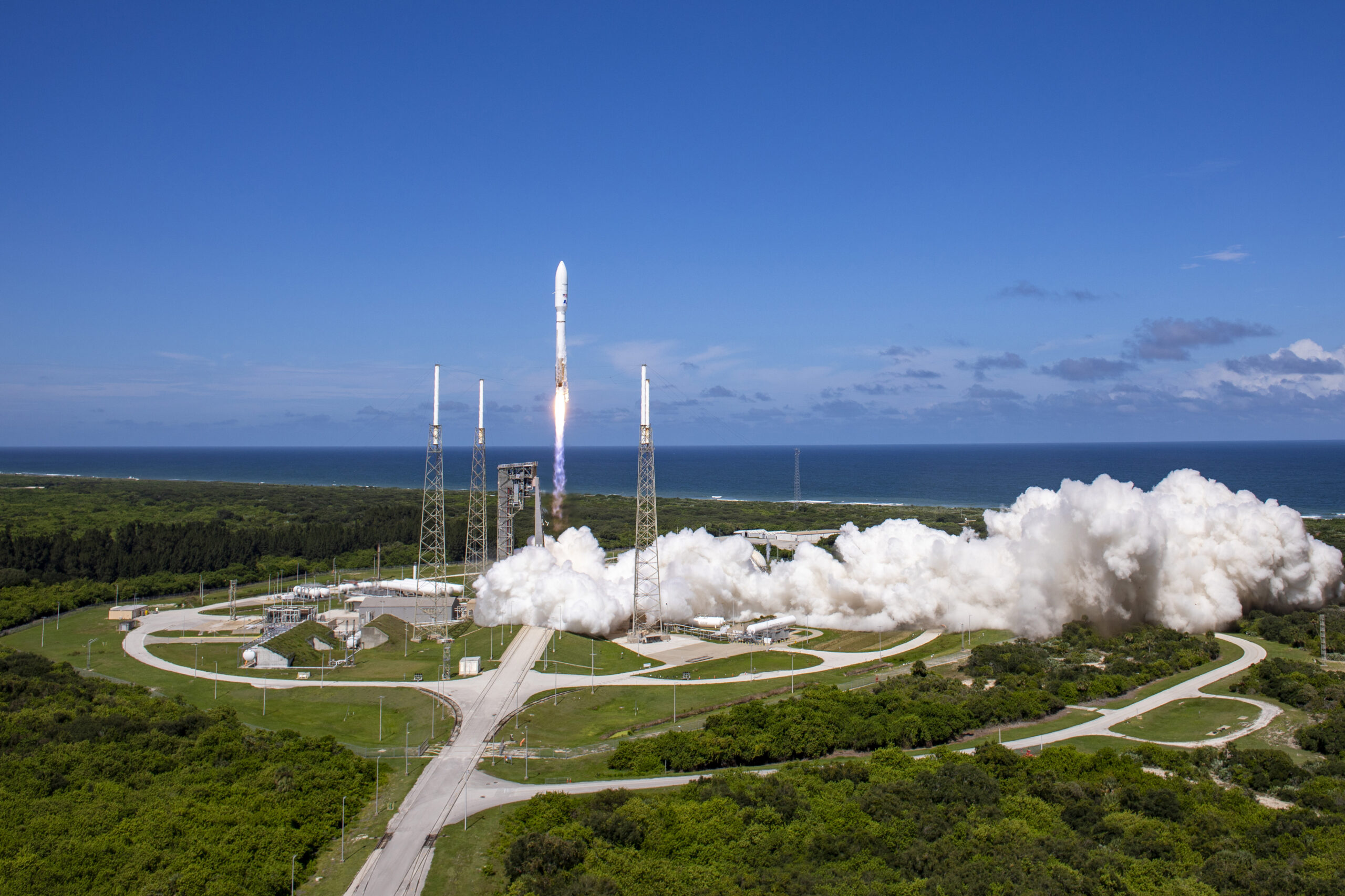TAMPA, Fla. — United Launch Alliance launched two prototypes Oct. 6 for the more than 3,200 Project Kuiper broadband satellites Amazon plans to build and deploy over the next six years.
An Atlas 5 rocket carrying the satellites lifted off 2:06 p.m. Eastern from Space Launch Complex-41 at Cape Canaveral Space Force Station, Florida, and dropped them off in low Earth orbit about 18 minutes later.
The launch was delayed six minutes following an alert that its trajectory would have passed too close to another object already in space.
It was the 99th launch of an Atlas 5, and the eighth time the rocket has flown in its 501 configuration after debuting April 2010.
It is also the 20th mission the Boeing-Lockheed Martin joint venture has performed for a commercial client, out of 158 launches since ULA’s formation in 2006.
While ULA announced it had successfully deployed KuiperSat-1 and KuiperSat-2 at 2:56 p.m. Eastern, Amazon had yet to confirm signal acquisition nearly four hours following the launch.
KuiperSat-1 and KuiperSat-2 would enable Amazon to test space and ground systems for Project Kuiper from an altitude of 500 kilometers before full-scale production launches start next year.
The prototypes were originally slated to fly by late last year with ABL Space Systems, before the rocket developer’s RS1 vehicle suffered setbacks. They were moved to the debut launch of ULA’s Vulcan Centaur, which was due to fly earlier in 2023, only for that rocket to get caught up in development delays.
ULA said following the Amazon mission that its next launch will be for Vulcan, set to launch no earlier than December.
Amazon has booked eight of the 17 Atlas 5 rockets remaining before ULA transitions to Vulcan.
The company has also reserved 38 Vulcan flights, 18 Ariane 6 launches from Arianespace, and up to 27 New Glenn missions from Blue Origin — owned by Amazon’s billionaire founder Jeff Bezos.
Ariane 6 and New Glenn are also experiencing significant development delays, and, like Vulcan, have yet to launch.
During a Sept. 11 panel at Euroconsult’s World Satellite Business Week in Paris, executives from ULA, Arianespace, and Blue Origin said they can still meet Amazon’s deployment schedule despite their rocket delays.
Amazon has to deploy at least half of its proposed 3,236 satellites by July 2026 under terms of its Federal Communication Commission license, and the remaining satellites three years later.
Series of tests
Amazon has released few details about the Project Kuiper satellites it plans to build at production facilities in Kirkland, Washington.
Analysts expect full-sized Project Kuiper spacecraft will come in at more than 500 kilograms for a Ka-band network seeking to meet the broadband needs of consumer, enterprise, and government customers worldwide.
The company unveiled three prototype antennas in March, ranging from the size of Amazon’s Kindle ebook reader that promises speeds up to 100 megabits per second, to a device 48 centimeters by 76 centimeters across capable of up to 1 gigabit per second.
The plan is for Kuiper-1 and Kuiper-2 to test space-based systems that will be used on operational spacecraft, including how they connect with terminals and the ground infrastructure needed to support them.
“This is Amazon’s first time putting satellites into space, and we’re going to learn an incredible amount regardless of how the mission unfolds,” Project Kuiper vice president of technology Rajeev Badyal said in an Oct. 3 blog post about the launch.
The company said it plans to actively de-orbit both satellites following their mission, before they would naturally burn up in the Earth’s atmosphere in an uncontrolled descent, but did not provide details.
Initial production satellites are on track to launch in the first half of 2024, Amazon added, enabling beta tests with early commercial customers by the end of that year.
